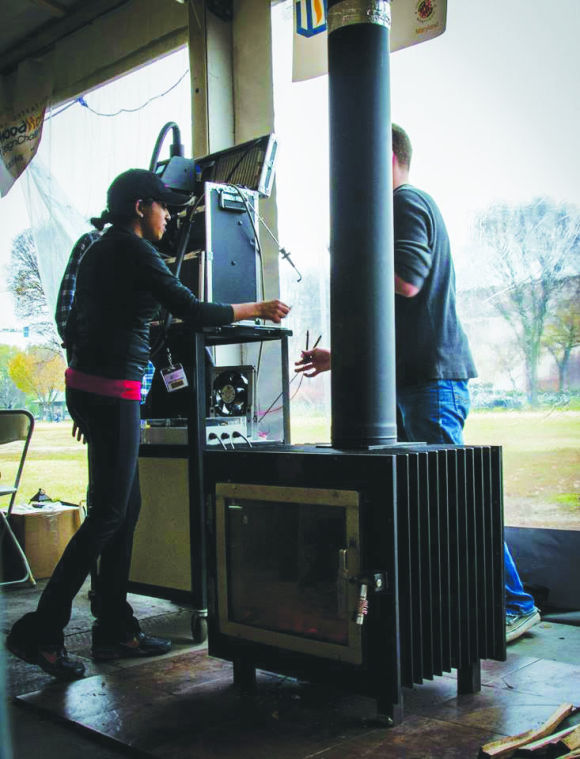
Wood Stove Decathlon
Last week, a university team traveled to the National Mall to compete in the Wood Stove Decathlon, earning the top prize in the particulate matter emissions category.
The event pitted 12 teams against each other from Nov. 15 to 19 and tasked them with building wood stoves. The engineers who made up the teams ranged from employees of established companies to small-time inventors. This university’s team was the only student group.
Taylor Myers, captain of this university’s Team Mulciber, said the development of the team’s stove began last year when the Alliance for Green Heat, the nonprofit that organized the event, reached out to the university.
“We didn’t know anything about wood stoves a year ago,” he said.
Myers and his team got to work, designing a stove with features such as a combustion fan, which allows for easier regulation of oxygen flow and temperature. This is something most modern commercial stoves leave out, the second-year fire protection engineering graduate student said.
“The key advantage is control,” Myers said. “We can adjust our stove on the fly.”
Though he said this feature helped keep the team’s stove’s particulate emission much lower than others in the competition, Myers plans to make several modifications in the future, including changing the fan’s air flow. The Mulciber stove let smoke seep out when its door was opened in the competition, a flaw, he said.
Other speed bumps, such as the stove overheating and damaging some of its electrical work, cost the university’s team a chance at winning the top prize, said John Ackerly, Alliance for Green Heat president. With a few more months to develop the stove, it could have been a different story, he added.
“We loved it because it was really out of the box,” Ackerly said. “They had some really innovative designs with a ton of potential.”
The Wood Stove Decathlon received nearly 50 applicants and selected 14 as finalists, he said. Two, however, dropped out before the competition started. While the top awards were given to larger companies such as Woodstock Soapstone Company and Travis Industries, Ackerly said fresh ideas like those explored by Team Mulciber are crucial moving forward.
“No one knows if the solution to low emissions is something that hasn’t been tried before,” he said.
Lewis Thibodeau, the vice president of manufacturing at Woodstock Soapstone, said the university’s team’s ideas were interesting and innovative. His company’s stove won the grand prize of $25,000 for having what judges considered the best all-around entry.
“I was jealous because they were able to think outside the box because they weren’t making a stove for immediate release on the market,” Thibodeau said. “We haven’t used a fan mostly because of the restriction of price point.”
The Alliance for Green Heat plans to hold another Wood Stock Decathlon in two years, though details are tentative. If the competition is held again in the fall of 2015, Myers plans to make another run.
“It’s absolutely something I want to continue with,” he said. “We’d like to keep moving forward with our idea because we think it’s one that isn’t on the market yet.”



